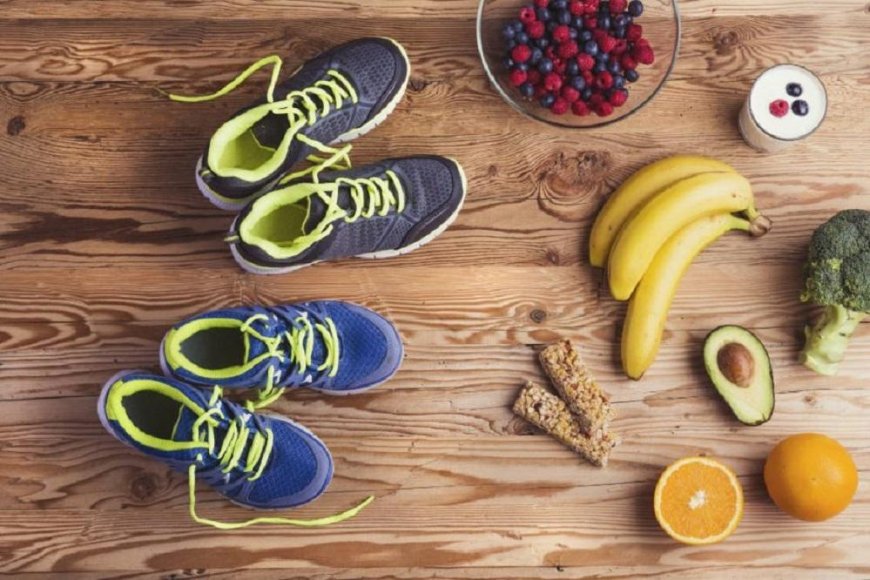Nutrition Before the Marathon - Important Tips
known as runner anemia. To avoid its consequences, it is important to know how to eat before a competition. Nutrition Before the Marathon.

Endurance athletes may suffer from a condition known as "runner anemia". To avoid its consequences, it is important to know how to eat before a competition. Nutrition Before the Marathon.
Marathon is an endurance test, the preparation of which requires a lot of effort when selecting the menu. Proper nutrition before a marathon can even make a difference to a runner's life!
The goal of the diet of athletes competing in this discipline is to achieve a good body composition and increase metabolic efficiency.
Both goals can be achieved through diet. However, a series of nutritional strategies and protocols are required to optimize energy production and maximize fat loss.
If you are participating in long distance runs, make sure you eat properly before the marathon. This article will provide you with relevant tips and dispel your doubts.
Nutrition Before the Marathon: Intermittent Fasting
The effectiveness of intermittent fasting in weight loss has been scientifically demonstrated. Taking into account the circadian hormone cycles in terms of food intake stimulates the production of growth hormone, which means an increase in lipolysis and a reduction in body fat.
In addition, skipping meals reduces the chances of upsetting your energy balance in favor of excessive consumption. This has a positive effect on weight reduction.
For this reason, intermittent fasting is one of the preferred protocols if the goal is to improve body composition. For long distance runners, articals have added value.
Training during these periods of food deprivation can increase the body's organic and metabolic adaptation to exercise. In this way, the reproduction of mitochondria and the efficiency of lipid oxidation for energy production are also stimulated, which has a positive effect on the athlete's performance.
Ensure adequate protein intake for a marathon runner
Diets that are too low in calories are often used to improve body composition. However, it is imperative to guarantee protein intake to improve the athlete's recovery and avoid loss of muscle tissue that does not benefit performance.
In addition, it is recommended that you consume at least 25 grams of high biological value protein after training to aid muscle recovery after exercise.
Take care of your iron intake
One of the most common ailments that affects an endurance athlete is what is known as anemia, or runner's anemia. It involves movement that causes the foot to be tapped repeatedly and forcefully at the level of the Achilles tendon, causing red blood cells to burst.
Must Read: Six ways to help your child love learning
To minimize the impact of this situation and prevent anemia-induced chronic fatigue and weariness, you need to get adequate iron intake.
To this end, it is essential to ensure the intake of animal feed. In addition, you cannot ignore products composed of vegetables and fruits rich in vitamin C, which stimulate the absorption of this mineral.
On the other hand, it may be advisable to supplement or monitor the doses of vitamin B12 consumed through the diet. As a result, the risk of a lack of muscle oxygenation is reduced.
However, if you suspect that you may be suffering from runner anemia syndrome, see a medical professional immediately. This will give you the necessary recommendations to get out of this situation as quickly as possible.
Summary - Good nutrition before the marathon is essential
Marathon is a very demanding endurance test. In order to compete safely in this type of discipline, it is necessary to carefully take care of your diet. There are certain protocols, such as intermittent fasting, that can be beneficial in improving performance and body composition.
However, it is imperative to monitor your protein intake to avoid losing muscle tissue as part of a low calorie diet. Sufficiently high amounts of this nutrient will reduce the effect of catabolism on muscle mass, which could increase the risk of injury.
Finally, remember that you also need to be especially careful about the risk of runner anemia. For this, it is necessary to ensure adequate iron intake in the diet.
This is done by consuming meat on a regular basis as well as certain vegetables that are high in this mineral. For this purpose, it is recommended to include them in the diet together with foods that are a source of vitamin C in order to improve their absorption.
